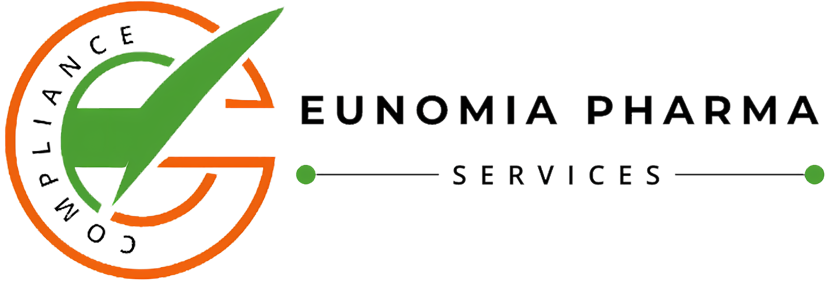Across the Globe, pharmaceutical and biotech companies continue to face compliance challenges that can damage trust, delay innovation, and attract regulatory scrutiny. In most companies, compliance and medical affairs teams are already stretched thin, balancing daily operations with an ever-changing regulatory landscape. This pressure often means that, despite best intentions, the same mistakes are repeated, not because of a lack of effort, but because the teams simplydon’t have the time, tools, or capacity to close every gap.
Common Healthcare Compliance mistakes are:
1. Misleading or Unbalanced Communications
How to prevent it: implement a structured review and approval process, ensure all materials are aligned with up-to-date clinical evidence, and require formal medical and compliance sign-off before any external use. Regular training and clear internal guidelines can further reduce the risk of inadvertent misrepresentation.
2. Activities That Blur the Line with Promotion
Educational events, scientific exchanges, or pre-launch communications sometimes appear promotional in tone or execution. This creates risk of being seen as promoting unlicensed products or indications.
How to prevent it: define clear principles for scientific dialogue, prepare standardised materials, and train staff to recognise the difference between education and promotion.
3. Hospitality and Meetings Without Clear Justification
Meetings held at high-end venues, excessive travel arrangements, or poorly documented advisory boards can create a perception of undue influence on healthcare professionals. Even when the intent is educational, such practices risk being seen as promotional, undermining trust with HCPs, patients, and the public, and potentially attracting regulatory scrutiny.
How to prevent it: establish clear policies on venue selection, spending limits, and allowable hospitality; document the scientific or educational purpose of every meeting; and ensure all external engagements receive pre-approval from compliance. Maintaining transparent records and measurable objectives helps demonstrate that activities are strictly for legitimate scientific exchange.
4. Transparency Gaps in Financial Disclosures
Incomplete or late reporting of payments to healthcare professionals, organisations or other external stakeholders continues to attract attention. Transparency failures can erode trust and reputation.
How to prevent it: maintain a centralised system for recording all transfers of value, reconcile regularly with finance and contracting teams, and conduct quarterly internal reviews to ensure accuracy and timeliness.
5. Weak Third-Party Oversight
Companies are ultimately responsible for the actions and omissions of external consultants, speakers, and vendors. Engaging third parties without thorough vetting, clear contracts, or ongoing monitoring can create significant compliance gaps, potentially leading to misleading communications, inappropriate promotion, or patient safety risks. Failures by third parties can directly expose the company to regulatory action and reputational damage.
How to prevent it: implement standardised onboarding and due-diligence processes, use contracts with explicit compliance and ethical obligations, and maintain a central register to monitor deliverables, payments, and adherence to agreed standards. Regular audits and oversight ensure that third parties act in line with the company’s compliance framework and safeguard patient and public trust.
6. Incentives Driving the Wrong Behaviours
Sales or performance targets that prioritise volume over quality can pressure field teams, MSLs, and sales staff into inappropriate promotional activities. When promotional and non-promotional functions are not clearly separated, the risk of unintentional off-label promotion or misleading communications increases, potentially affecting healthcare professionals, patients, and public trust.
How to prevent it: clearly separate promotional (sales) and non-promotional (medical/scientific) roles and responsibilities, align incentives with ethical behaviour and scientific integrity, and introduce qualitative performance indicators. Provide tailored, role-specific training for field teams, MSLs, and sales staff, including practical scenarios and guidance on distinguishing compliant scientific exchange from promotional activity, ensuring all interactions remain patient-centric and compliant.
Building the Right Compliance Culture
While each issue has its own fix, the deeper solution lies in building a robust compliance framework that is clear, practical, and consistently applied. Companies should focus on:
- Easy-to-read policies, principles, and guidelines
- Well-defined processes with accessible templates and tools
- Regular training tailored to real situations staff face
- Central access to up-to-date information and decision support
- Ongoing monitoring and feedback loops to strengthen controls
- Leveraging trusted compliance partners for independent expertise and operational support
How Eunomia Can Help
At Eunomia, we bring together deep healthcare compliance expertise with a flexible shared-service and outsource model. This approach provides pharmaceutical and biotech companies with access to robust compliance frameworks, ready-to-use SOPs, and hands-on operational support across critical areas such as approvals, meeting governance, and transparency reporting. By combining strategic guidance with practical execution, we help companies stay compliant, reduce risk, and focus on their core scientific and commercial objectives with confidence.




